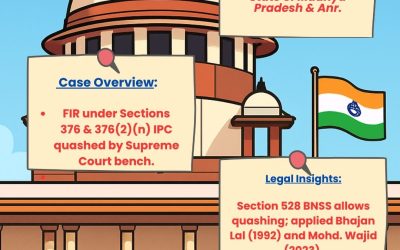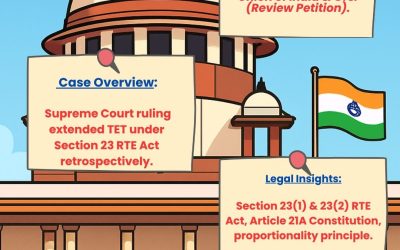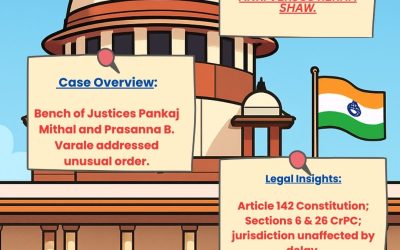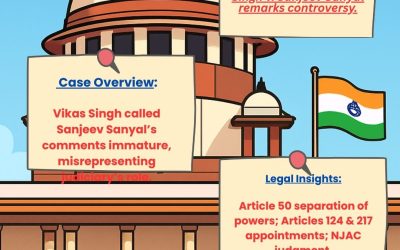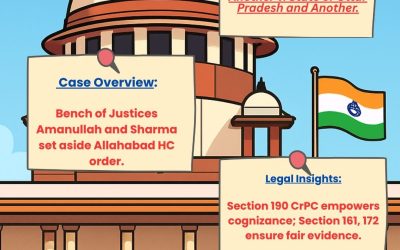
Supreme Court takes suo motu case on CCTV cameras in police stations to ensure custodial accountability.
Why in NewsThe Supreme Court takes suo motu case on CCTV cameras in police stations after custodial deaths reported . |
Discover powerful Latin Maxims and simplify complex legal terms in seconds.
Overview
According to a report by Dainik Bhaskar, 11 custodial deaths have occurred in the past seven to eight months, exposing the lack of functional CCTV cameras in police stations . On September 4, a bench of Justice Vikram Nath and Justice Sandeep Mehta registered a suo motu case regarding the non-compliance of CCTV installation in police stations . This action follows the 2020 Supreme Court judgment in Paramvir Singh Saini v. Baljit Singh which had directed all States and Union Territories to ensure CCTV cameras were operational in every police station . Despite the binding mandate, implementation remains weak .
Step into the world of justice with Courtroom Chronicles.
Key Aspects
The case brings back attention to accountability in law enforcement and the state’s duty to protect citizens .
- Despite the 2020 ruling, several police stations still lack CCTV cameras .
- Many existing CCTV units are non-functional, making them ineffective for accountability .
- The suo motu action arose from a media report highlighting custodial deaths .
- It underlines systemic negligence in enforcing prior Supreme Court orders .
Legal Insights
The Supreme Court’s move is grounded in constitutional protections and earlier precedents ensuring transparency in policing .
- Article 21, Constitution of India : Protects the right to life, violated in custodial deaths .
- Article 14, Constitution of India : Guarantees equality before law, ensuring citizens are not subjected to arbitrary action .
- Paramvir Singh Saini vs. Baljit Singh (2020) : Mandated CCTV cameras in every police station .
- DK Basu vs. State of West Bengal (1997) : Laid down custodial safeguards .
Conclusion
The Supreme Court’s suo motu action on CCTV cameras in police stations reaffirms its commitment to custodial accountability . With Justice Vikram Nath and Justice Sandeep Mehta leading, States may now face stricter compliance directions .
Source – Supreme Court of India
Read also – Constitution of India
The LawGist ensures exam success with quality notes—TPL, Current Affairs, Recent Judgments, and more. Backed by trusted resources and videos, The LawGist is every aspirant’s first choice. Discover more at thelawgist.org.


